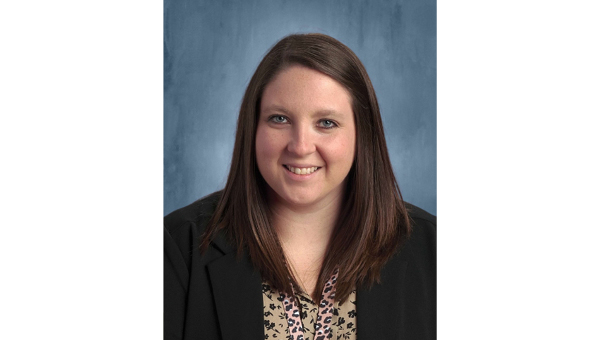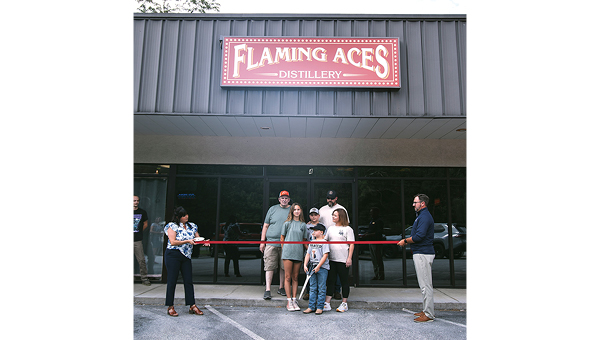DirectLine – $20 surcharge on City of Elizabethton water bills expected to remain
Published 12:29 pm Monday, May 26, 2014
Editor’s Note: According to City of Elizabethton Director of Utilities Johann Coetzee, the average water consumption for both water and sewer customers is about 4,500 gallons per month. There are approximately 10,200 water customers and 5,460 sewer customers. Almost all sewer customers served by the City of Elizabethton live inside the Elizabethton City limits. The average sewer bill is based on 3,900 gallons per month water use. The average sewer bill is $24.89 per month. The average water bill (without $1.91 sales tax and the $10 capital fee) for City of Elizabethton customers who live inside the city limits is $19.71 and $37.31 (without $3.64 sales tax and $10 capital fee) for customers who live in the county.
Question: In what account is the $20 surcharge on City of Elizabethton water customer bills being deposited and how will the funds be used? When will the surcharge be discontinued?
Answer: The following answers were provided by City Manager Jerome Kitchens. “I believe the $20 is in reference to a combination of the $10 water capital improvements and the $10 garbage collection fee. Although the fees are studied annually, the improvements that brought the fee into being are large multiyear (20) commitments that will not go away for a long time and could not be reduced in the near future.
“Your total water bill is divided into several different components. There is a $10 charge which is designated to WCI. There is a minimum bill charge that you pay to be connected and a usage charge based on the amount of water that goes through the meter. The usage is charged for both water and sewer.
“The WCI fee was initially enacted as a surcharge based on expected costs of the City of Elizabethton’s participation in the Watauga River Regional Water Authority. The charge was similar to amounts placed on various other utility districts involved in the authority. These fees are deposited into the water and sewer fund directly. Monthly, funds are transferred to an interest bearing savings account, managed by the State of Tennessee, from which the City of Elizabethton makes debt payments twice a year.
“In 2011, additional revenue was needed to enable several capital repairs, fund principal and interest payments in that year and to fund future years’ debt service. The surcharge increased from $4 to $10 to help fund the State Revolving Loan Fund Debt for Hampton Trunk Line Replacement, Gilbert Peters Bridge Waterline Repair, Lyons Field Pump Station and Dewatering Building Equipment Replacement.
“The increased annual revenue, totaling $1,394,000, was dedicated to capital improvements. In 2011, the year’s debt service was $1,163,500. In 2012, the year’s debt service was $1,458,700. Only capital improvements are funded by debt.
“Almost all of these improvements have been funded with 20-year bonds/loans with level debt service. This means the City of Elizabethton received the capital improvement relatively quickly but must pay the loan back over a long period of time.
“How long will the WCI fee be charged? To answer that question, the City of Elizabethton began a process called a rate study or what some call a cost study. Independent engineers looked at our historic costs, predict necessary maintenance and improvements, predict future demand for services and forecast where the water and sewer operations would be financially over time. This study is available to the public and helps guide what fees are necessary to provide for clean water and treatment before and after use.
“One feature of the study is to explore the impact of various rates upon different classes of customers. In a current proposal, it was recommended that the base $10 WCI fee be modified to reduce the impact on minimum bill payers. Part of the WCI fee ($7) would be added to the minimum bill and the remainder ($3) would be added to the usage fee. This does not eliminate the fee. It just reduces the impact on the minimum bill customer.
“Large sections of our water system were put in place in the late 1920s and early 1930s. This was done in anticipation of large industrial growth that did not materialize. We are not unique in having older infrastructure that is costly to maintain in that this is a problem shared across America. The goal of the current city government is to significantly improve our infrastructure to reduce water loss in our drinking water and reduce stormwater infiltration into our sanitary sewers.
“These improvements are being guided by two forces. The first is state regulation that dictates certain minimum conditions for water systems. The second is the desire to hand down to the next generation a system that is neither crippled by failures within the system nor burdened by impossible rates,” Kitchens said.
Submit questions to Direct Line, telephone 297-9066, or send an e-mail to directline@elizabethton.com.




